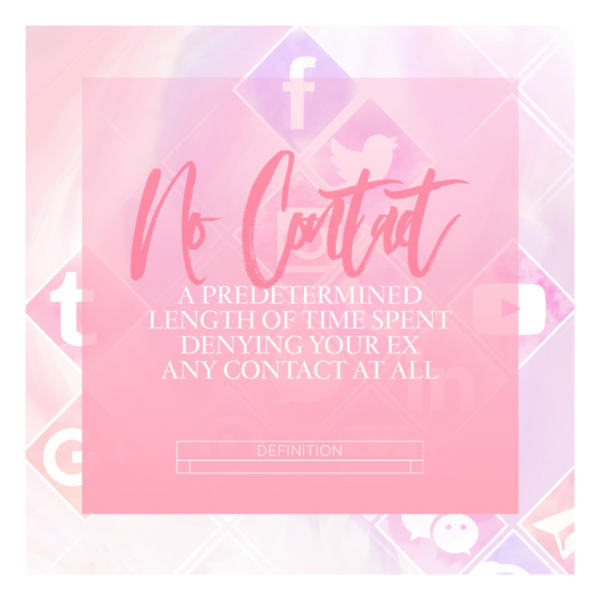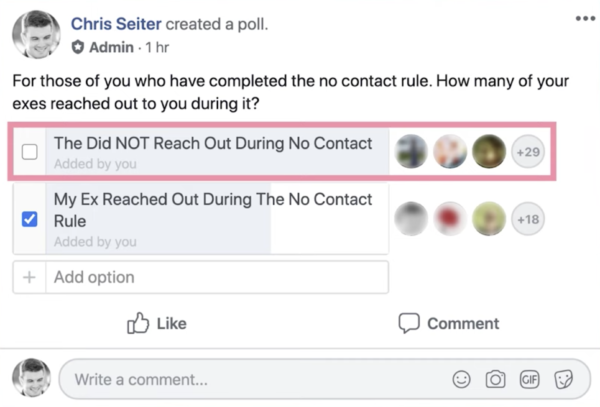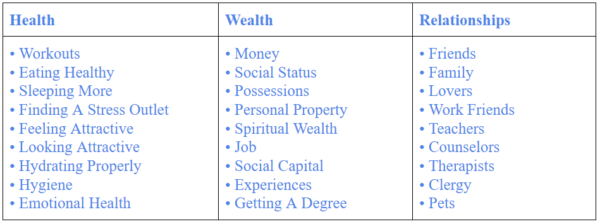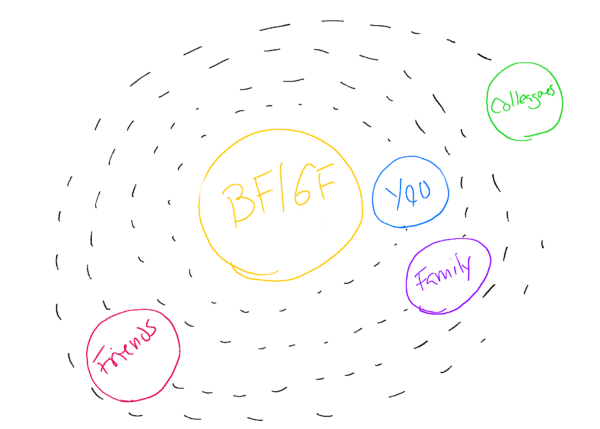This is part one (in a two part series) I’m doing on handling being dumped.
Today we’re going to have complete discussion of knowing exactly what to do when you get dumped.
In other words, I’m going to look at the eight specific behaviors or strategies that are considered universal (whether you want your ex back or want to move on from them.)
Those eight behaviors are,
- Implement a no contact rule
- Adopt a Date Yourself Mentality
- Employ the breakup triad technique
- Going out on the right dates can help (proven by science)
- Go beyond the trinity and find your magnum opus
- Find the right support system
- Grieve but don’t be consumed by it
- Listen to Tom Hanks
Let’s begin!

What Are Your Chances of Getting Your Ex Boyfriend Back?
Take the quizBehavior #1: Implement A No Contact Rule
Alright, the first thing might be pretty obvious to anyone who’s read our articles before, it’s to do a period of no contact.
Where we, as a company, add value (and differentiate ourselves in regards to NC) is in our approach to it.
Traditionally, most of the times you hear about the no contact rule, it’s usually from someone talking about how it can help your ex come back.
They’ll suggest that by implementing this period of no contact, your ex is more likely to want you back because of reactance.
The idea is that you’re taking the behavioral freedom of your ex away, and as a result, they’re likely to react in a way to try to regain that freedom.
However, after interviewing hundreds of different success stories, we’ve found that it’s the people who use the no contact rule to outgrow their ex that have the most significant impact.
So we’ve actually altered our official definition of the no contact rule to this one,
The no contact rule refers to a period of time where you cut off all conceivable communication with an ex after a breakup. The intent of this tactic should not be used to make your ex miss you, but instead, to rebuild your own life so that you outgrow your ex. By doing this, the no contact rule can have the added benefit of making an ex miss you.
A couple of years ago, I wrote a comprehensive guide on the no contact rule.
It covers everything from:
- The psychology of why it works
- Learning what your ex is thinking during
- when you can expect it to start to work
- The success rate of it
- And how not to break it.
It’s incredibly in-depth running at about 16,000 words (which some have said might be too long.)
Yet, the element that people often overlook with the no contact rule is the importance of your intentions.
As our official definition stated, the intention should be to outgrow your ex, to move past them.
It’s not enough just to understand that It’s what you’re supposed to be doing with the no contact rule.
You need to genuinely feel it, and you can listen to some of the success stories in the success story category of Ex Boyfriend Recovery to confirm this.
Over the years I’ve asked many individuals who have used the no contact rule, “Was outgrowing your ex something you could fake? Could you pretend that you were trying to outgrow them?”
Everyone resoundingly answers, “No.” It needs to be authentic.

What Are Your Chances of Getting Your Ex Boyfriend Back?
Take the quizThis authenticity is why my team and I believe in the ‘two birds, one stone’ approach with regards to handling breakups.
Often, experts divide individuals into two categories:
- Those who want to get back with their ex
- Those who want to move on.
I was guilty of this when I first started Ex Boyfriend Recovery in 2012.
However, I’ve found the most successful individuals adopt a holistic view. They don’t divide the situation into “I need to get my ex back” or “I want to get over my ex.”
Instead, they simply aim to outgrow their ex.
Behavior #2: Adopt A “Date Yourself” Mentality
This discussion leads us seamlessly to the next behavior that I want to discuss: adopting a ‘date yourself’ mentality.
Six years ago, I had the pleasure of interviewing a wonderful woman named Veronica Grant for our podcast.
Veronica was somewhat of a Renaissance woman: a yoga coach and also a breakup coach.
It’s been six years so I’m not sure if she still does this, but she taught me an intriguing concept: dating yourself.
The concept is all about treating yourself, during a period of no contact, the way you would want someone else to treat you if you were dating them. That might mean treating yourself to a fancy dinner with friends, or going on what might typically be considered a romantic vacation, but with a trusted friend or even by yourself.
The goal is to put yourself in a situation where you are likely to realize what it’s like to be treated the way you want to be treated.
I love this concept because many of my clients spend the no contact period simply waiting to see if their ex will reach out to them. But the irony is that most of the time, our polls have shown that if you implement a period of no contact, your ex is not likely to reach out to you.
62% of exes don’t reach out at all during the no contact period.
So, you’re just sitting there twiddling your thumbs, hoping things will work out, when the reality is you’re not doing anything meaningful with your time.
We often hear cliché advice like “love yourself after a breakup”.
The only tangible action I’ve seen that makes a difference in self-love is this ‘date yourself’ mentality.
So, my recommendation is, if you’re in the middle of a no contact period and you want to outgrow your ex, adopt this mentality. Take yourself out, treat yourself the way you want to be treated in a relationship. Doing this also sets a standard for how you want to be treated, honored, and respected in future relationships.
However, it’s not always easy. For many, dating yourself can feel like a failure.
You might want to do these activities with someone else.
You might be constantly thinking about the breakup.
And that’s where the next behavior comes in.
Behavior #3: Employ The Breakup Triad Technique:
This concept might seem a bit complex, but it draws from scientific research.

What Are Your Chances of Getting Your Ex Boyfriend Back?
Take the quizI came across an intriguing paper titled “Down Regulation of Love Feelings After a Romantic Breakup: Self-Report and Electrophysiological Data.”
The paper posits that the most effective way to overcome a breakup is by employing a triad of techniques: negatively reappraising your ex, performing a love reappraisal, and utilizing distraction.
So, what does each of these entail?
- Negative reappraisal: involves taking a holistic view of your time with your ex and focusing on the negative aspects. After a breakup, it’s natural to focus on the positive moments and mourn their loss. However, negative reappraisal isn’t about demeaning your ex; it’s about recalling the bad times and recognizing that your ex might not have been the best fit for you. This technique can help to metaphorically knock your ex off the pedestal you may have placed them on.
- Love reappraisal: on the other hand, is about accepting your current circumstances. It involves acknowledging that yes, you have broken up with your ex, but that it’s not all bad. A significant part of outgrowing your ex is reaching an emotional state where you’re at peace with the breakup, which aligns with the acceptance part of this triad.
- Distraction: as the name suggests, involves finding ways to occupy your mind so that you’re not constantly thinking about your ex.
According to the article, you should adopt a “kitchen sink” approach post-breakup, employing all three of these strategies consistently to fully move on from your ex.
However, does one strategy stand out as more important than the others?
The article suggests that distraction was the most effective in making participants feel better overall, but it didn’t affect their feelings of love for their ex. Negative reappraisal, on the other hand, improved participants’ overall well-being and reduced their feelings of love for their ex.
Therefore, while distraction may help improve your overall mood, it’s not enough on its own.
You also need to negatively reappraise your ex and accept your circumstances.
Essentially, these strategies have a symbiotic relationship.
If your goal is to feel better overall, distraction might be your best bet. However, if you aim to fall out of love with your ex, negative reappraisal is the strategy you should focus on.
Behavior #4: Scientifically Going Out On Dates With Others Can Help:
The next strategy I’d like to discuss is somewhat controversial: going on dates with others.
Recent studies suggest that rebound relationships, which are often perceived negatively, can actually assist in overcoming a breakup.
However, I’ve also encountered some contradicting research, interestingly, from the same source.
Psychology Today is an excellent resource when looking for well-written articles that delve into the science of breakups.
- This article on their site posits that rebound relationships can expedite the process of moving on from an ex.
- However, another piece titled “The Truth About Rebound Relationships” presents three key arguments that add a little more nuance to the subject
It (the nuanced article) suggests that negative dating experiences can push individuals in on-again, off-again relationships to return to their exes.
In other words, a particularly bad date might tempt you to go back to a familiar ex, especially if you’ve had an on-again, off-again relationship with them. This holds true for both parties involved in such a cycle.
Secondly, the article argues that rewarding dating experiences can help diminish attachment to an ex-partner, making reconciliation less likely.
Thus, the quality of the dates you go on post-breakup is crucial. A bad date might make you long for your ex, while a good one can make you less inclined to return to them.
The third point, while not directly relevant to our discussion here, is intriguing: attempting to interfere with an ex’s new relationship can remind them of the negative aspects of your past relationship, damaging chances of reconciliation.
This is why I often recommend a longer period of no contact in my work on the “Being There Method.”
Allow your ex to navigate their new relationship without interference to avoid being cast as the villain in their narrative.
Going on dates with others can indeed be beneficial after a breakup, but the quality of these dates is paramount.
This was exemplified by a success story of a woman named Jamie Cantrell who I interviewed a few years ago.
Jamie emphasized the importance of going on quality dates with others.
Initially, she had some bad dating experiences but then started having positive ones.

What Are Your Chances of Getting Your Ex Boyfriend Back?
Take the quizThese good experiences were instrumental in her decision to stop wanting her ex back. In an ironic twist, her active dating life prompted her ex to want to return, but by then, she had too many options and no longer wanted to reconcile.
Behavior #5: Go Beyond The Trinity And Find A Magnum Opus
One of the most effective strategies I’ve developed at Ex-Boyfriend Recovery is the concept of the Trinity.
This involves dividing your life into three distinct aspects:
- health
- wealth
- relationships
And then continually striving to balance them.
In an ideal world, you would maintain positive progress in each of these areas.
If your health, wealth, and relationships are all thriving, you’re likely to experience happiness.
If they are out of balance, then guess what? You’ll experience unhappiness.
Individuals who are overly dependent on their ex-partners often struggle with the Trinity concept.
As I discussed in an article I co-wrote with my wife on codependence, we found that such individuals tend to center their entire world on reclaiming their ex or their lost relationship.
The key in such situations is to make them realize their overreliance on their ex and help them find a purpose greater than their ex.
This is where the Magnum Opus comes in.
For highly codependent people, simply advising them to balance their life using the Trinity won’t suffice.
They need a guiding North Star to work towards.
Hence, I devised the Magnum Opus concept.
It refers to your life’s greatest achievement, your life’s work. What is the legacy you want to leave behind? What excites you so much that you could spend countless hours on it without a second thought?
I often advise people to find a Magnum Opus goal that intersects with all three areas of the Trinity.
It should be something that can positively impact your health, wealth, and relationships. It can be challenging to identify such a goal, but that’s what makes it worth pursuing. If it were easy, everyone would be doing it, and it wouldn’t be a worthy Magnum Opus.
Once you find your Magnum Opus and dedicate your time to it, you’ll become less dependent on your ex. In fact, you’ll start relying more on yourself, which is the desirable outcome.
Behavior #6: Find The Right Support System
This might be a controversial statement, but, unfortunately, after a breakup, friends and family aren’t always the most supportive.
Sometimes they can be, don’t get me wrong, I’m not implying they can’t be.
However, particularly in situations where people want their exes back—a situation we encounter often with our clients—friends and family may not provide the support needed.
You may hear responses like,
“Why would you want that person back?” or “There’s plenty of fish in the sea.”
Sometimes, they might even unintentionally sabotage your efforts.
Therefore, it’s crucial to surround yourself with individuals who can respect your privacy and understand what you’re experiencing. My recommendation is to join a community.
Yes, we do have a community. But I’m not going to push it on you as I think that would be tactless.
Right now, the main focus is to help you.
Finding a supportive community, whether it’s ours, a community on Reddit, or another one, can provide a sense of accountability. It can also create an environment where you’re surrounded by people who genuinely understand your situation, which can be incredibly beneficial.
Additionally, seeking a therapist or even a coach can be advantageous. Someone who can understand your situation, provide sound advice, and engage in one-on-one discussions with you can be ideal. As I mentioned before, we do offer coaching, but I won’t push that on you either.
The important thing is to find someone who resonates with you and your situation.
Behavior #7: Grieve (But Don’t Be Consumed By It)
The next step is to grieve, but don’t be consumed by it.
Grieving is normal.
In fact, it’s recommended. You can go to Google, type in, “What to do after being dumped” and you’ll see pretty much every single person on the first page talking about grieving and the importance of allowing yourself to feel.
And I agree with that for the most part.
However, I’ve found that it can be incredibly dangerous if you allow yourself to grieve too much.
I always view grieving a bit like quicksand.
You need to walk over the quicksand, but if you stop to enjoy your surroundings a little too much, it begins to swallow you up. Soon, you find yourself in a pit of bottomless grief that you can’t climb your way out of.
As the quicksand gets deeper, you become more stuck, leading to depression and an exponentially worsening situation.
Yet, the other end of the spectrum is to not grieve at all, to put up a wall, which isn’t healthy either.
So, as is usually the case in life, the real approach to grieving should be somewhere in the middle.
Here’s the technique that we teach our clients when we advise them to grieve.
- Get your phone out and set a timer for 10 or 15 minutes—it doesn’t matter.
- What matters is that there is a set time and an alarm that will go off.
- When you start that timer, you give yourself permission to feel everything, to grieve everything. It doesn’t matter what negative thoughts you have, you give yourself permission to let them out. Cry, do whatever it takes.
- But when the timer goes off, it’s time to stop.
- It’s time to move on.
- Work on your magnum opus, go on dates with others, do some of the other things we’ve talked about.
This method allows you to express your feelings, but it doesn’t allow you to stop and get caught in the quicksand.
So grieve, but don’t allow yourself to be consumed by it.
Have a strategy in place that prevents an extended stay in ‘Grieve Town’.
Behavior #8: Listen To Tom Hanks
This one’s a bit of a personal touch, but I can’t help myself.
About a year ago, I stumbled across this actor’s roundtable that gathered some of the biggest movie stars.
They spent an hour discussing various topics related to acting and life.
- Adam Driver
- Shia LaBeouf
- Robert De Niro
- Adam Sandler
- Tom Hanks
Were all present.
The interviewer posed questions to everyone, including, “If you could give your younger self one piece of advice, what would it be?”
Everyone gave insightful answers, but Tom Hanks’s response was the pièce de résistance.
His advice was to understand that “this too shall pass.”
He emphasized that whether you’re angry, ecstatic, or depressed, these feelings will pass.
Change is the one constant in life.
Most people, myself included, resist change.
It’s challenging, but I believe that those who embrace it, recognize it for what it is, and maintain enough self-confidence to say, “I’ll be okay,” are the ones who achieve the greatest success.
So no matter how bad you’re feeling right now reading this, remember: this too shall pass.



